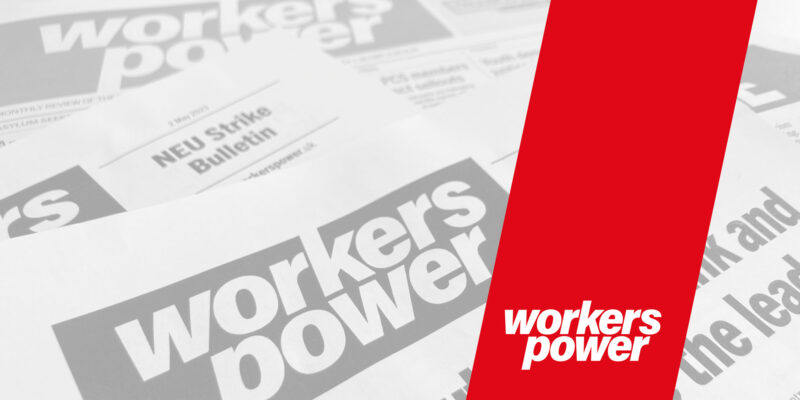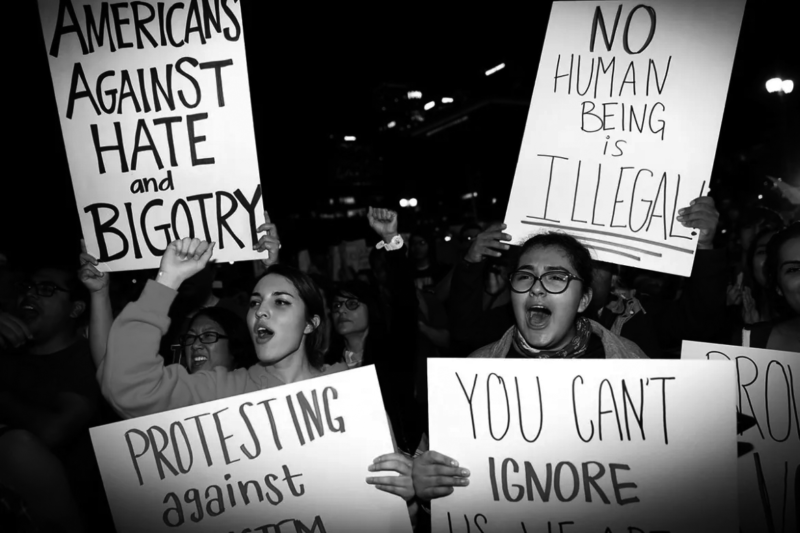Counter-revolution in Ukraine: mobilise against reactionary coup and fascist militias
By Peter Main

The overthrow of Ukrainian President Viktor Yanukovych by the Euromaidan movement marks a major strategic advance for the imperialists of the EU, led by Germany. Although their preferred option was a “controlled” transfer of power via early elections and a compromise with opposition leaders, it is a mark of their determination to extend their power eastwards that they were prepared to see him driven from office by an armed insurrection. In their own terms, after all, he was a democratically elected Head of State.
The combination of widespread discontent at the collapse of living standards, illusions in the prospect of economic advance through a closer alliance with the EU and Yanukovych’s desperate attempt to drown the occupation of the Maidan in blood, resulted in five days of street fighting that left at least 82 dead, amongst them 13 policemen, and over 1000 injured. Ominously, the key to the victory of the insurrection was the role of openly fascist gangs such as Pravy Sektor (Right Sector), Spilna Sprava, (Common Cause), the so called Afghantsy (Afghan veterans) and the supporters of Svoboda whose leader, Oleh Tyahnybok, is one of the three main speakers of the Euromaidan movement.
By Friday, 22 February, the Euromaidan forces had taken over the government buildings in Kiev while, in Western Ukraine, in Lviv, the regional authorities and the police had gone over to the uprising and sent far right activists and then rebel police forces to Kiev to help oust Yanukovych. Reportedly prevented from flying to Russia, the erstwhile President fled from the capital to Ukraine’s second city, Kharkiv, in eastern Ukraine. The following day, guarded by fascist militias and rebel police officers and with a third of its members absent, the Verkovna Rada or Parliament, voted unanimously to impeach President Yanukovych. They then voted for the release of the imprisoned leader of the Fatherland Front, and former Prime Minister, Yulia Tymoshenko.
Maidan
The three month occupation of the Maidan in Kiev created the conditions for the growth and consolidation of the fascist forces. It began as a protest against Yanukovych’s last minute refusal, under pressure from Moscow, to sign an Association Agreement and Free Trade deal with the EU last November. That agreement had been ten years in negotiation and had been widely presented as the precondition to economic progress in Ukraine.
It was certainly seen as the only way forward by those capitalists, including Dmitry Firtash and Petr Poroshenko, the third and fourth richest capitalists in the country, who were excluded from the “Oligarchs” behind Yanukovych’s “Party of the Regions”. However, for Ukraine’s workers the deal would have meant a 40 per cent hike in the price of gas, a freeze in wages, pensions and social security and a slashing of state expenditure – in short, being force-fed the IMF medicine which has shredded the living standards of workers in Greece, Latvia and many other countries. Despite widespread discontent at falling living standards, this was not a prospect that could inspire the great majority of Ukrainian peasants and workers.
As a result, although the occupation of Maidan created a solid centre of opposition to Yanukovych, with significant funding and backing from pro-EU sources, it did not transform itself into a mass movement, even if for reactionary goals, as was seen across eastern Europe in the period 1989-90. Instead, it became, above all, a focus for all right wing, nationalist forces, including the anti-EU fascists of the Right Sector who steadily gained in influence with their combination of intransigent opposition to any deal with Yanukovych and their leading role in street fighting against the police.
Yanukovych finally decided last week to end the impasse by crushing the occupation, the symbolic heart of the opposition. Yet the resort to such desperate measures was ineffective because it faced not an unarmed crowd but the large and well-organised fascist militias who speedily drove the police back from their positions. This provoked a full-scale firefight with dozens of police officers and protesters shot dead. In the aftermath, the fascists, having paid their “blood price”, could no longer be reined in by the formal leaders of the opposition.
So the EU’s attempt to force a compromise, the national unity government, came too late. When opposition leaders appeared on the Maidan stage to announce their deal, they were booed off. The militias not only refused to hand over their weapons but issued an ultimatum that Yanukovych had to go by Saturday or they would force him from office. In the event, they did not need to carry out their threat; by Saturday morning not only had Yanukovych fled but the security forces had also disappeared from the streets of the capital.
Prospects
Although the fascist squads were strong enough to resist police attacks and to stiffen the resolve of the political leaders of the opposition, ultimately, at this stage of development, they have to be understood as auxiliary forces. They will certainly have increased their numbers, their organisational strength and their morale and will continue to be a factor in events. Against them, the working class needs to build its own forces. However, what the fascists have ensured is the achievement of the main goal of more powerful forces. Internationally, that means the EU and, within Ukraine, it means the pro-EU capitalists and the Fatherland Front.
Any suggestion that, despite the presence of fascists, the overthrow of Yanukovych represents some kind of democratic revolution would be the worst kind of delusion, worst because the only conclusion to be drawn from it would be complacency. From the start, the “Euromaidan” movement mobilised support on the basis of a reactionary appeal to separatist and nationalist ideology among the Ukrainian-speaking population concentrated in the west of the country. Its success, thus far, was less dependent on the fascists than on the absence of any working class opposition to both the Yanukovych regime, with its backing from Russian imperialism, and the plans of the European imperialists.
As the first steps are taken towards forming a new government, with Oleksandr Turchynov, the Speaker of Parliament, installed as interim President, and elections called for May, the building of such a politically independent working class movement is a burning necessity.
The first priority of the new government will be to consolidate its own control over the country, in particular suppression of any opposition from the predominantly Russian-speaking East and South. Their intention was made clear almost immediately by a parliamentary vote to downgrade the status of the Russian language. Since it is in these heavy industrial regions that the EU’s policies would have the greatest impact in terms of plant closures and dismantling of services, breaking the back of any potential opposition will be a principal objective. They have already shown that they will not shrink from mobilising fascist gangs to enforce their plans.
Although the working class should give no political support whatsoever to elements of the Yanukovych regime, revolutionaries should argue for united action against the new government. They should call for the building of democratic working class assemblies in every town and city in which the strategy and tactics for resistance can be developed. Those assemblies, and any other workers’ organisations, will need to arm themselves and should demand that regional governments open the arsenals so that they can form workers’ militia.
The historic cultural divisions between West and East in Ukraine are the greatest potential weakness facing the workers of the whole country. The world has seen in former Yugoslavia how generations of Stalinist oppression and then the depredations of capitalist restoration can leave a working class leaderless and open to the poison of nationalism. While neither of the external powers, Russia or the EU, wants to see a civil war or the division of the country, their interference and backing for rival, regionally-based, forces mean such an outcome is not impossible.
The working class is the only social force with both the need and the capacity to defend the unity of the country while fighting for its own class interests. That means a unitary, independent Ukraine in which the economic and military resources of the whole country are under the control and at the service of the working class. It means a struggle to defend the creation of an economy that serves the material, social and cultural needs of all those who work. And it means a fight against the reactionary powers, East and West, who will drop their conflict and collaborate to crush any independent workers’ actions.
This means that workers in Russia, Germany and the rest of Europe, must defend workers’ action in Ukraine and oppose all intervention by “their” governments, either to impose economic policies, to stoke up regional antagonisms or to divide the country.
Against the politics of despair, the answer and inspiration is the genuinely democratic and internationalist spirit of the recent Bosnian protests. “Down with nationalism!” is the slogan on the streets as they fight for all nationalities in their country against austerity and inequality. Unity of the workers and poor of all nationalities against national hatreds, austerity, and capital: that’s where the hope for Ukraine lies.









